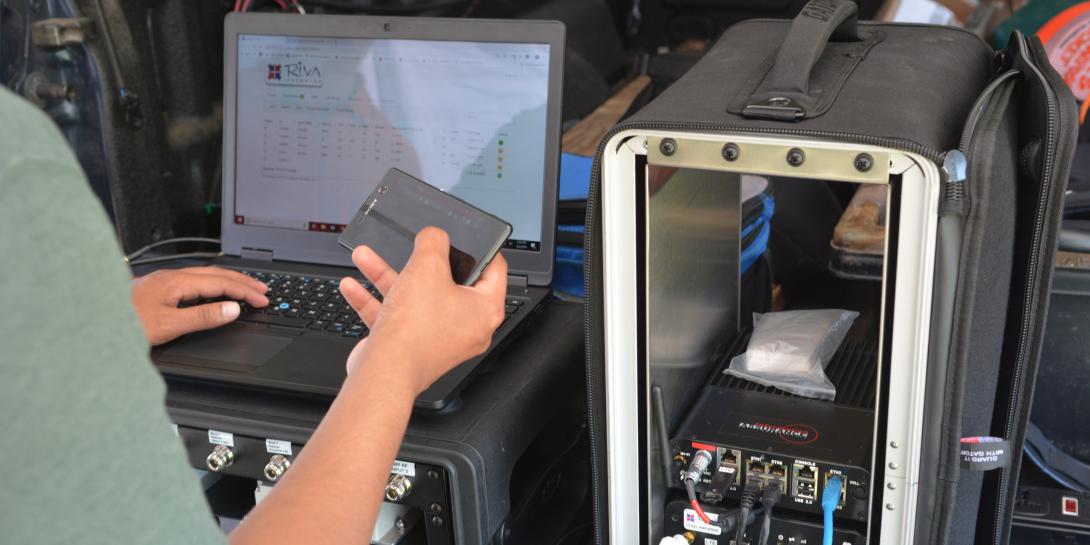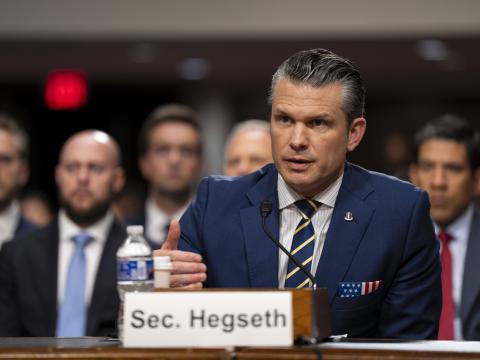Defense Intelligence Agency Retools During COVID-19
The secure nature of providing foreign military intelligence to the U.S. Department of Defense and the intelligence community requires careful stewardship of information and employees in an unclassified and classified environment. Once the COVID-10 pandemic hit, shuttering businesses and altering daily life, the U.S. Defense Intelligence Agency, known as DIA, immediately had to examine and prioritize how to perform that work.
“When I look at that type of environment, it is something that we as an intelligence agency plan for all of the time,” said John Sawyer, chief of staff, DIA, who spoke September 16 at the 2020 Intelligence and National Security Summit co-hosted virtually by AFCEA and the Intelligence and National Security Alliance (INSA). “We have to be able to operate in a degraded environment. But one of the things that was different about the COVID-19 pandemic was that it challenged the assumptions that we had about the nature of our work.”
In mid-March, the DIA offered maximum telework flexibility to agency employees that were eligible to work remotely—a workforce option not really practiced in the intelligence community before the pandemic.
“We had to look at the work that we had to do and those things that could be done in our facility, what was most important that must to be done in a classified environment, and what could be done outside our facility,” Sawyer said. “Our networks, unclassified, they weren’t developed” for this kind of situation and so that meant that we would have to also ensure that those networks were capable of taking on a significant uptick in the number of folks working outside.”
Agency leaders designated that employees physically working at the DIA headquarters would be the ones who take on the most critical national defense mission areas. “The highest priorities of China, Russia, North Korea, Iran and the violent extremist organizations," Sawyer clarified. For those people working outside the facility, DIA identified and revamped business processes for unclassified work, including policy, documentation, and information technology system efforts.
For the chief of staff and other leaders at the DIA, it was also about how employees could be more efficient and effective in that unclassified environment, and what the agency could to do support their growth.
Johnny SawyerChief of Staff, DIA @DefenseIntel: During the COVID-19 pandemic, we've moved training out to our employees to help them better position themselves for when they do come back into the office, including AI, language skills #IntelSummit20 pic.twitter.com/0PAx8pSkCX
— Kimberly Underwood (@Kunderwood_SGNL) September 16, 2020
“We looked at how we could improve their skill sets so that when they come back into our facility, they are in a better position than they were before,” Sawyer emphasized. “And so, we moved some training out. We arranged a number of seminars. We improved our language skills, our understanding of region issues, and we improved our ability to look at the implementation of artificial intelligence and machine learning. Moreover, we looked at how we could accelerate the creation of data scientists within the agency so that they could meet our mission requirements.”
That approach was successful, the chief of staff said, especially in regard to the agency’s encompassing Machine-assisted Analytic Rapid-repository System, or MARS, which is a top priority.
“It is basically the propagation of military intelligence that allows us to understand and operate in an environment and the forces that are within it,” he explained. “It is the future of how we are going to understand fighting in that environment. During the pandemic, we were able to move our digital services down to that unclassified environment and prove our ability to deliver the capabilities of MARS much sooner in the classified environment.”
As far as lessons learned, Sawyer shared that naturally they had to address the network for the distributed environment. “We learned to look at all of the networks out there that we operate on, and look at where we operated in unclassified, classified and SCIF locations and use that to increase the robustness of our networks.”
The chief of staff also stressed the importance of contractors supporting the vital military intelligence mission.
“We have to rely on our partners and industry to help,” Sawyer stated. “We must have strong relationships with industry, to have them help us understand the art of the possible and the cutting-edge technology that is out there and to provide the expertise that will allow us to maintain our qualitative edge.”





Comments